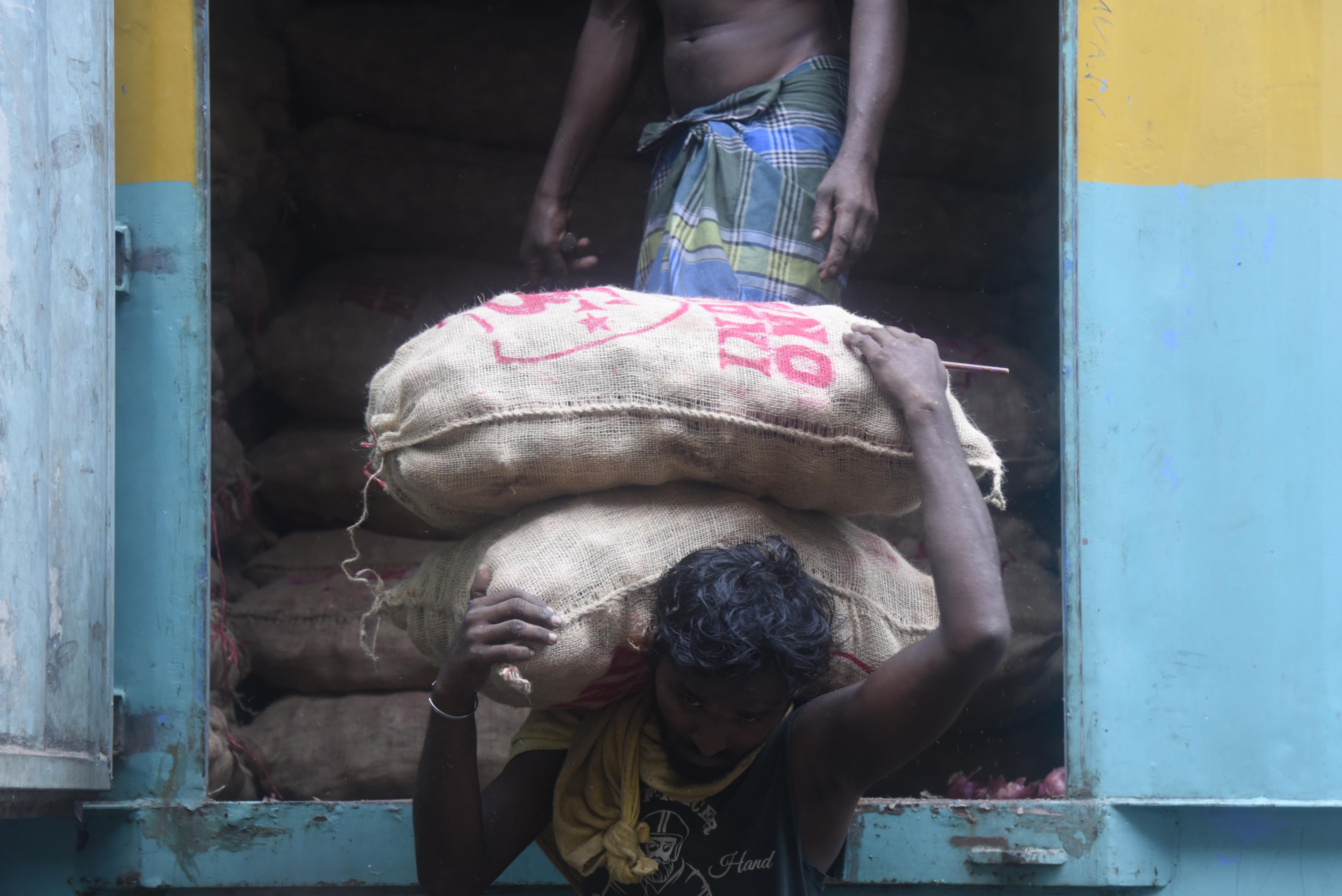The mood surrounding the annual UN General Assembly kickoff this week has been grim. Russia is pounding Ukraine and climate-related disasters are devastating places as far-flung as Pakistan,Portugal, and Puerto Rico.
In 2022, with total war returned to Europe and the global pandemic having scrambled supply chains, the food crisis is where the conversation is at.
But it’s not an issue of scarcity. This year’s global food crisis was initially (mostly) due to Russia’s blockade of Black Sea ports in southern Ukraine, which prevented millions of tons of grain from reaching countries that rely on Europe’s breadbasket to feed their populations. Ukraine is a major exporter of wheat, corn, and edible oils, accounting for more than 40% of sunflower oil supply globally before the war. (Dinner party fact: the yellow band on the Ukrainian flag represents the country’s vast golden fields of sunflowers.)
The scarcity issue has begun to stabilize since the UN and Turkey brokered a deal between Moscow and Kyiv in July, allowing exports to resume. But the problem is far from resolved.
Surging prices → hunger pains. Amid the war in Ukraine, global food prices rose in July by 13% year on year and could continue to rise another 8.5% over the next five years, according to the UN. There are several reasons for this.
The food crisis has been exacerbated by the surging price of fertilizer ingredients that are crucial to crop nutrition. Crucially, many fertilizer ingredients – like ammonia, nitrate, and potash – come from Russia and Belarus, both of which are unable (or unwilling) to meet global demand due to Western sanctions. Meanwhile, the situation has been exacerbated by Chinese curbs on some fertilizer ingredient exports.
Though the EU insists that its sanctions “have minimal impact on the agriculture sector,” Russian and Belarusian entities have been cut off from the SWIFT global payment network, and shipping companies face extremely high insurance premiums to transport Russian goods. Russia, for its part, says that Western sanctions make it difficult to export its stockpiles.
“While the information fog of war dictates caution, it’s pretty clear the invasion is the primary cause of food disruption. The Russian track record also indicates they are not above weaponizing food,” says Gerald Butts, vice chairman of Eurasia Group.
Connecting the dots. Fertilizer production is extremely energy-intensive, particularly for nitrogen fertilizer, which needs a lot of natural gas. Europe, for its part, is grappling with an energy crunch as it limits its reliance on Russian natural gas, which has driven up prices for European fertilizer producers that are then passed along to consumers.
What’s more, as Europe has become a net importer of fertilizer, many states have turned to alternative sources – like Morocco – for key fertilizer ingredients. However, upscaling takes time and has led to bidding wars for limited supplies that put emerging market economies at a disadvantage.
“In 2022, we have enough food that is not well distributed,” UN Secretary-General António Guterres told GZERO Media in a recent interview. “But in 2023, if we don't normalize the fertilizer market we simply won’t have enough food worldwide,” he says, adding that “fertilizer is extremely important not only for the present situation but for next year.”
African agriculture reels. The impacts of the food crisis are being acutely felt across Africa, long vulnerable to climate change, drought, and food insecurity. Heavily dependent on imported fertilizers, many African farmers either can’t afford the ingredients or can’t find them on the market. The African Development Bank, for its part, says the continent is short of at least two million metric tons of fertilizer, which could exacerbate hunger crises in countries already on the brink of famine, like Somalia.
In some African states, including the Ivory Coast and Cameroon, fertilizer prices have increased by 50% since Russia invaded Ukraine, prompting some agriculture workers to slash fertilizer usage, further threatening food production. In other countries, farmers have sought fertilizer substitutes: Some Ugandan farmers are replacing nitrate with … maggots, whose digestive systems transform food waste into fertilizer. And while a few international fertilizer producers are donating fertilizer to African farmers, many say it’s “too little too late.”
When leaders huddle at the UN this week, the deepening hunger crisis – including how climate change is exacerbating food insecurity – will be high on the agenda.
But what can the UN actually do to mitigate the worsening food disaster?
“Wealthy economies have limited capacities to directly tackle the issue of price inflation in the short run,” says David Laborde, a senior researcher at the International Food Policy Research Institute. However, they “could prioritize fertilizer production when dealing with natural gas rationing, make sure that global trade remains fluid and … avoid new waves of export restrictions,” Laborde says, pointing to concerns over India’s recent decision to limit some rice exports.
“It’s really a ‘money issue,’” Laborde adds, noting that “UN agencies need 30 more billion this year to tackle the hunger and malnutrition crisis.”
Overlapping factors make the current global food crisis extremely hard to address. But one thing is clear: maggots are not the only answer.
This article comes to you from the Signal newsletter team of GZERO Media. Sign up today.
